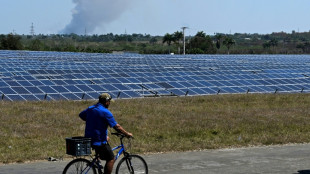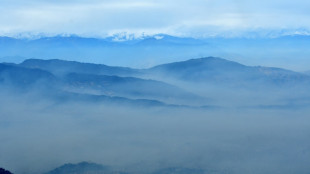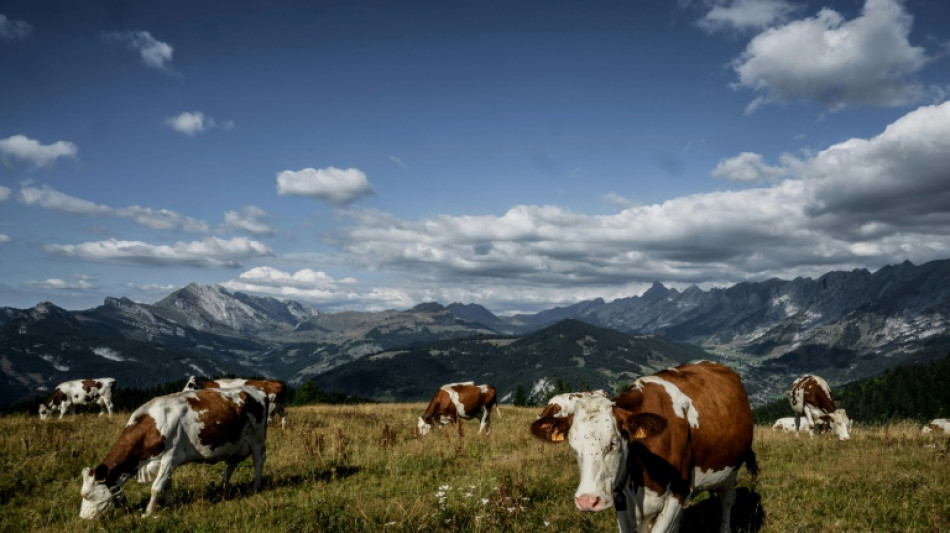
-
 De Bruyne to leave Man City at end of the season
De Bruyne to leave Man City at end of the season
-
Youthful Matildas provide spark in friendly win over South Korea

-
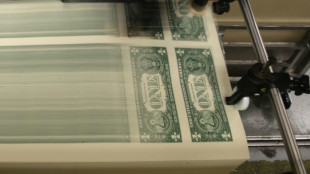 Stocks, oil extend rout as China retaliates over Trump tariffs
Stocks, oil extend rout as China retaliates over Trump tariffs
-
De Bruyne says he will leave Man City at end of season

-
 UK spy agency MI5 reveals fruity secrets in new show
UK spy agency MI5 reveals fruity secrets in new show
-
Leverkusen's Wirtz to return 'next week', says Alonso

-
 England bowler Stone to miss most of India Test series
England bowler Stone to miss most of India Test series
-
Taiwan earmarks $2.7 bn to help industries hit by US tariffs

-
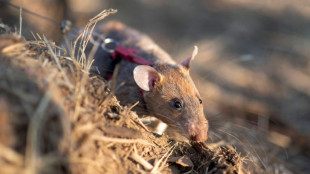 Rat earns world record for sniffing landmines in Cambodia
Rat earns world record for sniffing landmines in Cambodia
-
Elton John says new album 'freshest' since 1970s

-
 EU announces 'new era' in relations with Central Asia
EU announces 'new era' in relations with Central Asia
-
Greece nixes Acropolis shoot for 'Poor Things' director

-
 'Historic moment': South Koreans react to Yoon's dismissal
'Historic moment': South Koreans react to Yoon's dismissal
-
Israel kills Hamas commander in Lebanon strike

-
 Trump unveils first $5 million 'gold card' visa
Trump unveils first $5 million 'gold card' visa
-
Crashes, fires as Piastri fastest in chaotic second Japan GP practice

-
 India and Bangladesh leaders meet for first time since revolution
India and Bangladesh leaders meet for first time since revolution
-
Israel expands ground offensive in Gaza
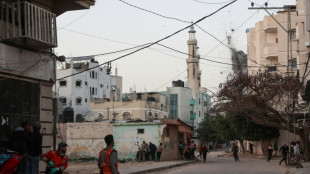
-
 Families of Duterte drug war victims demand probe into online threats
Families of Duterte drug war victims demand probe into online threats
-
Stocks extend global rout after Trump's shock tariff blitz
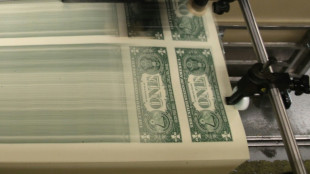
-
 Kolkata's Iyer more bothered about impact than price tag
Kolkata's Iyer more bothered about impact than price tag
-
BP chairman to step down after energy strategy reset

-
 Indian patriotic movie 'icon' Manoj Kumar dies aged 87
Indian patriotic movie 'icon' Manoj Kumar dies aged 87
-
China floats battle barges in Taiwan invasion plans
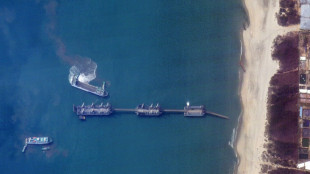
-
 McLaren's Piastri fastest in chaotic second Japanese GP practice
McLaren's Piastri fastest in chaotic second Japanese GP practice
-
South Korea seize two tons of cocaine in largest-ever drug bust
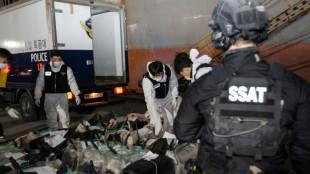
-
 Pacific nations perplexed, worried by Trump tariffs
Pacific nations perplexed, worried by Trump tariffs
-
The race to save the Amazon's bushy-bearded monkeys
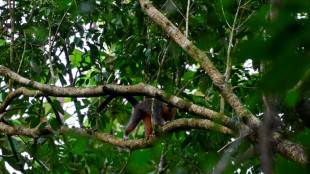
-
 TikTok must find non-Chinese owner by Saturday to avert US ban
TikTok must find non-Chinese owner by Saturday to avert US ban
-
Trump tariffs to test resiliency of US consumers

-
 Clamping down on 'forever chemicals'
Clamping down on 'forever chemicals'
-
Prominent US academic facing royal insult charge in Thailand

-
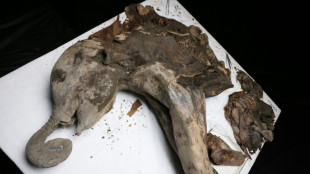 Yana, a 130,000-year-old baby mammoth, goes under the scalpel
Yana, a 130,000-year-old baby mammoth, goes under the scalpel
-
'Don't want to die': Lesotho HIV patients look to traditional medicine

-
 Curry scores 37 as Warriors outgun LeBron's Lakers
Curry scores 37 as Warriors outgun LeBron's Lakers
-
Crops under threat as surprise March heatwave hits Central Asia: study
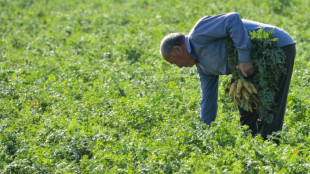
-
 Japan PM says Trump tariffs a 'national crisis'
Japan PM says Trump tariffs a 'national crisis'
-
Security 'breakdown' allows armed men into Melbourne's MCG

-
 Norris fastest in Japan GP first practice, Tsunoda sixth on Red Bull debut
Norris fastest in Japan GP first practice, Tsunoda sixth on Red Bull debut
-
Albon says Thailand taking bid for F1 race 'very seriously'

-
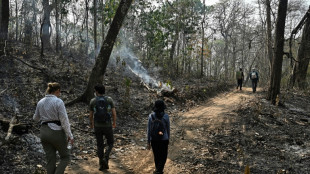 'It's gone': conservation science in Thailand's burning forest
'It's gone': conservation science in Thailand's burning forest
-
Protest as quake-hit Myanmar junta chief joins Bangkok summit
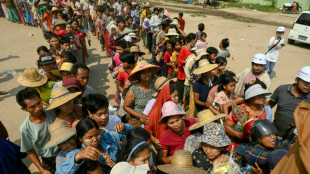
-
 EU leaders push for influence at Central Asia summit
EU leaders push for influence at Central Asia summit
-
Asian stocks extend global rout after Trump's shock tariff blitz
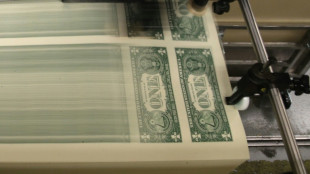
-
 Lewandowski, Mbappe duel fuelling tight La Liga title race
Lewandowski, Mbappe duel fuelling tight La Liga title race
-
South Korea court upholds President Yoon's impeachment, strips him of office

-
 Liverpool march towards title as Man City face Man Utd
Liverpool march towards title as Man City face Man Utd
-
Finland's colossal bomb shelters a model for jittery Europe

-
 Athletes frustrated as France mulls Muslim headscarf ban in sport
Athletes frustrated as France mulls Muslim headscarf ban in sport
-
Korda downs Kupcho to stay alive at LPGA Match Play


Dry summer puts squeeze on French Alps cheese
France's record heat and drought have not spared the majestic pastures under the snow-capped Alps, where cows are struggling to find enough grass to produce milk for reblochon and other prized cheeses.
"Everything's yellow and parched, so we'll have to bring them down from the pastures a month early," said Theo Bargetzy, 28, as cowbells rang out in a field some 1,600 metres (5,250 feet) above sea level.
Crowds of tourists in search of cooler climes have flocked to the Alps this summer where buying local raw-milk reblochon and other hand-made cheeses directly from local producers is a cherished ritual.
But this year, some heading to Bargetzy's Lorettes farm perched above La Clusaz are coming away empty-handed -- cows are not getting their usual fill of fresh grass, and their milk is less rich as a result.
July was the driest month on record for France overall since 1961, and heat waves pushed temperatures near La Clusaz above 30 degrees Celsius (86 Fahrenheit) on several days, unheard-of on the steep slopes.
"We're losing one reblochon per cow per day, so in a week that's 300 fewer cheeses," Bargetzy says later, while molding fresh curds into discs that will be carefully aged on wooden planks in a cellar until the distinctive orange-gold rind forms.
It takes four litres of milk (just over a gallon) to make each cheese that weighs some 450 grammes (just under a pound) -- within the guidelines set by the National Institute of Origin and Quality (INAO), the guardian of France's strict food and wine appellations.
"The worst thing is that this is when we have lots of tourists wanting to buy, and we don't have enough for everyone -- we run out, and can't sell to all the people coming to visit," he said.
- Raise prices again? -
Dozens of farmers have already dipped into their winter feed stocks, but overall dairy production in the region is down 15 percent from last year's levels, according to the AFTAlp cheese producers' association.
"The situation is difficult -- we've had droughts in the past but this is going on everywhere in France, Italy and elsewhere in Europe," said the association's president Jean-Luc Duclos.
Duclos and his family manage a farm with more than 200 cows for making emmental as well as meat near Frangy, with an app-controlled milking system that would astonish his grandfather, who had "four cows and four hectares to feed 11 children."
He worries that rising costs of feed, gas and electricity since the outbreak of the Ukraine war will create a vicious circle of price speculation and hoarding that could hurt farmers for months to come.
"We've already had to raise the prices of our Savoy products... but I think we'll have to raise them again, by around five to eight percent, to cover the impact of this drought," he said.
What for generations was subsistence farming has become a thriving Alps industry, though most operations are still family affairs that rely on both local and national networks to distribute their stocks.
Felix Gallet, 46, plays a key role as technical director of the reblochon cooperative in nearby Thones, ensuring the strict hygiene protocols required to sell raw-milk cheeses many countries do not allow because of bacterial risks.
"Our output is down around four or five percent. It's not a complete catastrophe because some farms are higher up, and temperatures were a little lower than in the valleys," Gallet said.
"But it's true that it's going to have an impact on our volumes, we're hoping to recover this winter but it's going to be hard to make up for what we've already lost," he said.
Gallet also warned that in response, producers can increase prices only so much.
"It's hard to go much higher, even for high-quality cheese. You have to bear in mind what consumers can pay," he said.
D.Cunningha--AMWN
